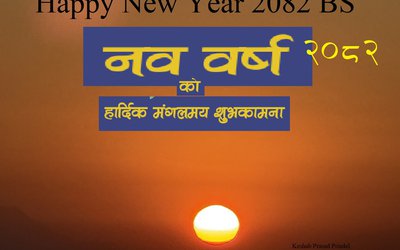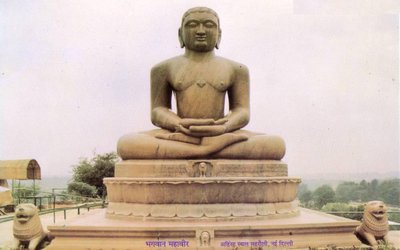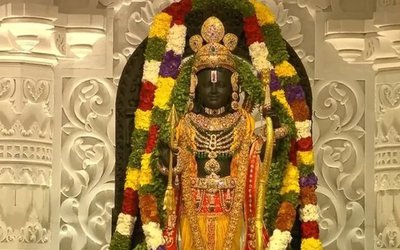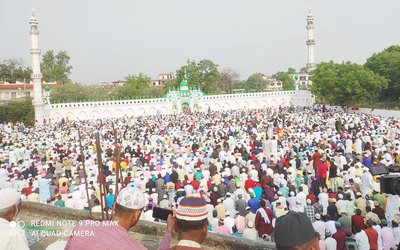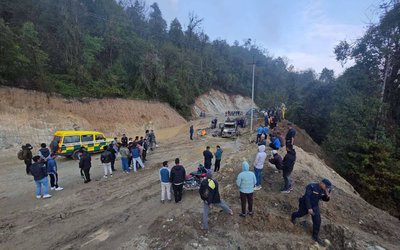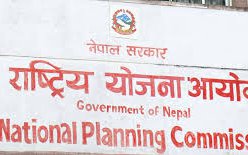
Hari Shayani Ekadashi also called Ashadha Shukla Paksha Ekadashi dedicated to Lord Vishnu is one of the most significant fasts observed by Hindus. It is also known as Devshayani Ekadashi, Ashadi Ekadashi, Hari Shayani Ekadashi, Maha-Ekadashi and Prathama Ekadashi.
On the day, people plant the small Tusli (Holy Basil) plants on the designated planting place in front of most of the houses in Nepal. The plant is also popular for its medicinal value in the traditional Ayurveda (the Hindu science of medicine).
On the day, people clean the house and surrounding area, sprinkle holy water ho their home. At the Pooja location in the house they install Sri Hari Vishnu statue made by gold, silver or brass metal. After worshiping the statue, people listen to the Brata Katha. Devotees visit Budhanilkantha shrine to pay respect to Lord Bishnu.
The Shayani Ekadashi date of celebration in 2020 falls on July 1 (Wendesday), also marking the commencement of Chaturmas, the holy period of four months when Bhagwan Vishnu goes to sleep and wakes up on Prabodhini Ekadashi.
The devotees worship Lord Vishnu and Mata Lakshmi according to the muhurat and puja vidhi and listen to Devshayani Ekadashi Vrat Katha. The devotees worship the images of Vitthal Rukmini (Lord Vishnu and Lakshmi avatars). Also Read - Yogini Ekadashi 2020: All You Need to Know About The Date, Time of Puja And Importance of This Day
According to the Hindu legends, Lord Vishnu fell asleep in Ksheersagar, the cosmic ocean of milk on the Shesha Shaiya – the bed of Shesha Nag (serpent). The event on the day is called Dev-Shayani Ekadashi (god-sleeping eleventh) or Hari-shayani Ekadashi (Vishnu-sleeping eleventh) or Shayana Ekadashi.
He slept for four months, called chaturmas coinciding with the rainy season. The period includes the Hindu calendar months of Ashadh, Shravan, Bhadarva ad Aaso. Also Read - Legend of Badrinath Temple: As Shrines Reopen Post COVID-19 Lockdown, Here's More History on The Famous Religious Place
Devshayani Ekadashi 2020 Muhurat Date
Few days after the commemoration of traditional Jagannath Rath Yatra, Deva-Shayani Ashadi Ekadashi takes place. It is the eleventh lunar day (Ekadashi) of the bright fortnight (Shukla Paksha) of the Hindu month of Ashadha (June – July in English calendar).

The muhurat timings are as follows – Ekadashi Tithi Begins on July 3, 2017, at 22:15 pm. The Ekadashi Tithi ends on July 2 at. Parana means breaking the fast, which is done after sunrise on next day of Ekadashi fast.
Significance of Devshayani Ekadashi Vrat Katha
Devshayani Ekadashi was first explained by Lord Krishna to Yudhisthira and according to Bhavishya Purana scripture, it is the tale of King Mandata. The region ruled by the great king had faced drought for three consecutive years leading to mayhem. The king was unable to find a solution to please the rain gods till finally, Rishi Angiras advised the king to observe the Vrata (vow) of Dev-Shayani Ekadashi and on doing so with the grace of Lord Vishnu, and there was rain in the kingdom bringing back the life and prosperity. Since then it became a ritual to observe a fast on this auspicious day to get blessings from Bhagwan Vishnu.
Devshayani Ekadashi Puja Vidhi and Mantra
It is a holy day, especially for Vaishnavas, followers of Hindu God Vishnu. The devotees worship the images of Lord Vishnu and Devi Lakshmi while observing fast. During the fast, the observers abstain from all grains, beans, cereals, certain vegetables like onions and specific spices. They sing and hymn chants of Vishnu the entire night and make vows to be observed during the entire chaturmas, the period of four months. On the auspicious day of Devshayani Ekadashi, devotees can chant any of these Vishnu Mantras and Slokas– Om Namo Bhagavate Vaasudevaaya Mantra, Vishnu Sahasranama Stotram or Vishnu Ashtottaram. Maharashtrians sing Marathi devotional mantra or song – Vitthal Vitthal Vitthala Hari Om Vithala.
- Foreign Minister Dr. Deuba Chaired Asia-Pacific region confronting
- Apr 21, 2025
- Nepal Electricity Authority cancels contract worth over Rs 1 billion, now electricity wires going to customers' homes are bare
- Apr 21, 2025
- Four people died in Taplejung after their vehicle caught fire after getting entangled in a live wire
- Apr 21, 2025
- RPP General Secretary Rana released on bail
- Apr 21, 2025
- Nepal requires Rs 21.165 trillion to implement SDGs goals
- Apr 21, 2025

